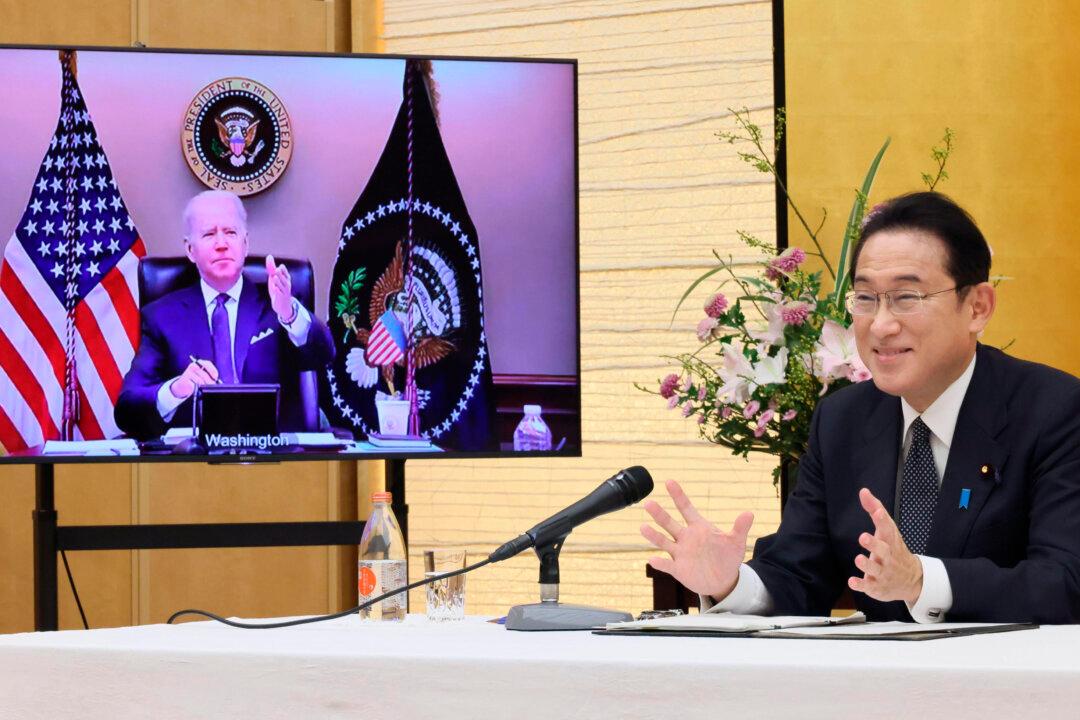Japanese Prime Minister Fumio Kishida made clear in virtual talks with U.S. President Joe Biden on Friday that his country “would be fully behind the United States” to deter Russian aggression against Ukraine, a senior administration official said.
The two leaders discussed the growing tensions caused by Russia’s amassing tens of thousands of troops along its border with Ukraine, according to the official.





